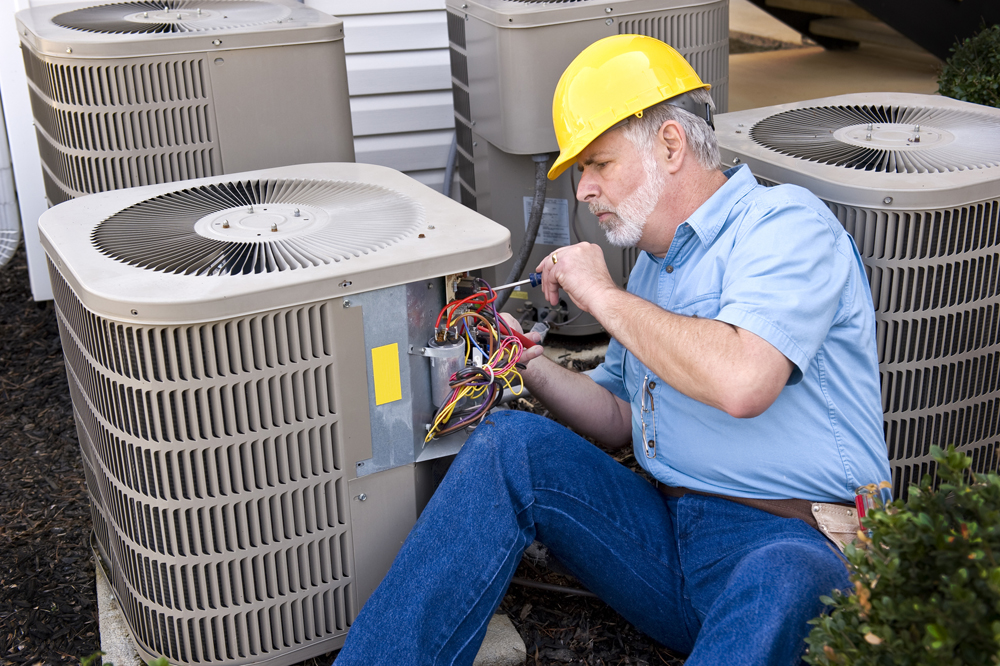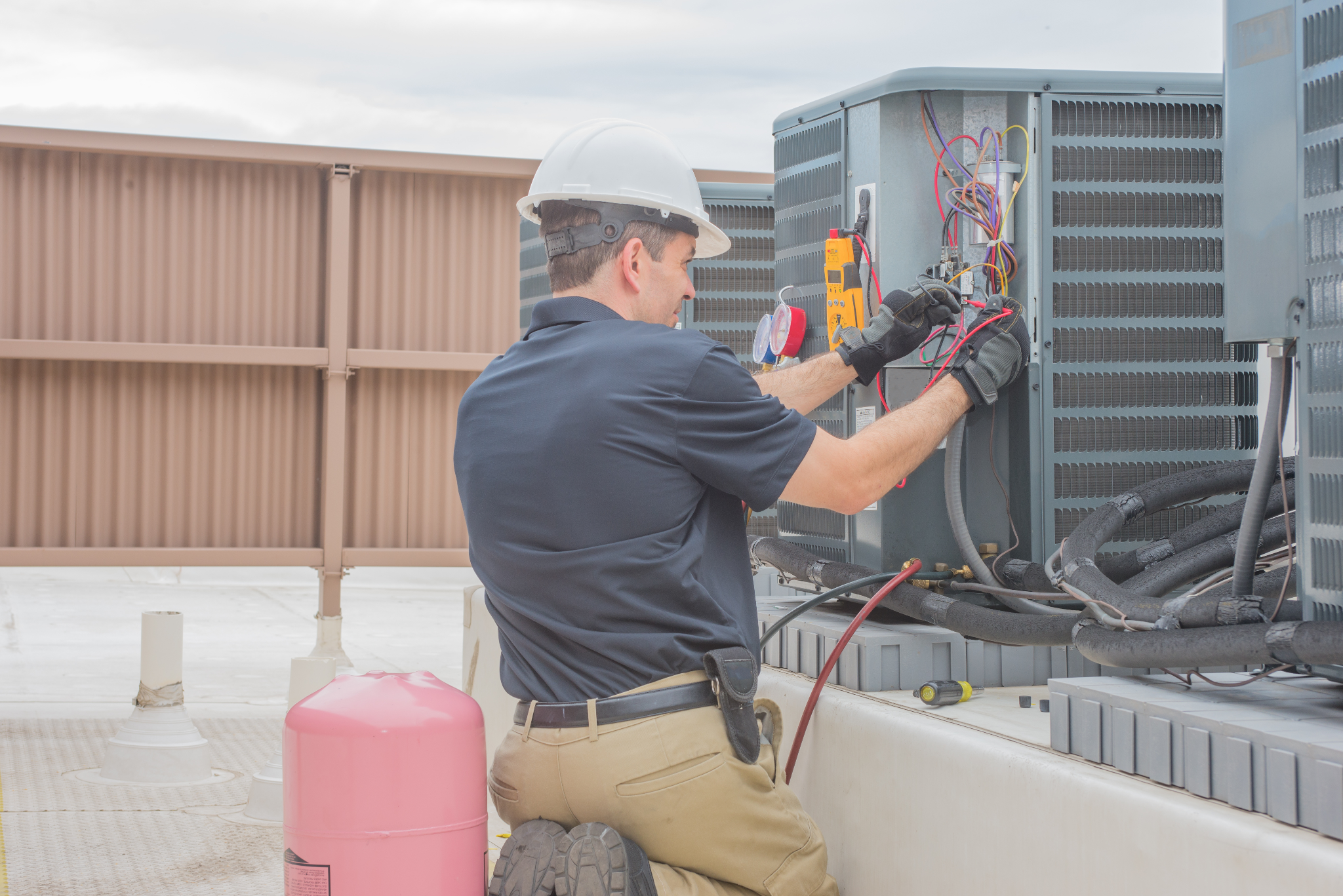Why ductless mini splits Outperform Traditional HVAC Setups
Why ductless mini splits Outperform Traditional HVAC Setups
Blog Article
Just How a Heat Pump and Heater Job Together to Optimize Your Home's Heating Effectiveness
Comprehending exactly how a heatpump and heating system work together is essential for property owners seeking efficient heating solutions. Each system has its strengths, providing a balanced technique to home convenience. The warm pump succeeds in moderate temperatures, while the heater delivers fast warmth throughout extreme cold. This synergy not just decreases power expenses but likewise boosts the life expectancy of both appliances. What factors affect this partnership, and exactly how can homeowners optimize their benefits?
Comprehending Warmth Pumps: Exactly How They Function
Although many individuals might be not familiar with their inner functions, heatpump play an important duty in modern furnace. These devices operate by transferring heat from one location to another, making use of the principles of thermodynamics. In colder months, a heatpump essences warm from the outside air, ground, or water, and transfers it inside to warm up the space. On the other hand, throughout warmer months, it can turn around the procedure, serving as an air conditioning system by eliminating warm from inside to the outside.Heat pumps are composed of an evaporator, condenser, compressor, and development shutoff. The refrigerant within the system soaks up warm as it evaporates at reduced temperatures and pressures. The compressor after that increases the pressure and temperature level of the refrigerant, permitting it to launch warm as it condenses. This efficient procedure can considerably decrease power intake contrasted to conventional home heating methods, making warm pumps a lasting selection for environment control in homes.
The Function of Heaters in Home Home Heating
Heating systems play an important role in home heating by providing a reliable resource of warmth during the colder months. They run by creating warmth with burning or electrical resistance, distributing it throughout the home by means of air ducts or glowing systems. The effectiveness of a heating system is commonly gauged by its Yearly Fuel Usage Efficiency (AFUE) score, which indicates just how efficiently the device converts fuel into heat.Furnaces can use numerous power sources, including gas, gas, oil, or power, permitting house owners to choose the most ideal choice for their needs. Unlike heatpump, which may have a hard time in severe chilly, furnaces maintain consistent efficiency, making sure that indoor temperature levels continue to be comfortable despite outdoor conditions. Additionally, contemporary heaters often come equipped with advanced modern technology, such as variable-speed blowers and smart thermostats, boosting their performance and responsiveness. This flexibility makes heating systems a critical component in all-inclusive home heating strategies.

Benefits of Making Use Of Both Systems Together
Incorporating the strengths of both heaters and heatpump can result in an extra efficient and reliable home heating solution. Utilizing both systems enables home owners to benefit from the heatpump's power efficiency during milder temperatures while counting on the heating system for even more severe cold problems. This dual approach can significantly lower energy prices, as heat pumps consume much less electricity than standard heating approaches when temperature levels are moderate.Additionally, using both systems together can improve convenience degrees in the home. Heatpump can supply consistent, also heating, while heating systems can rapidly raise ambient temperature levels when needed. Additionally, the assimilation of both systems can extend the life expectancy of tools by lowering deterioration on each unit, as they share the workload. Inevitably, property owners can take pleasure in a balanced, cost-efficient home heating option that adjusts seamlessly to varying climate condition, making certain a warm and welcoming home throughout the winter season.
How Warmth Pumps and Furnaces Enhance Each Various Other
When house owners incorporate warmth pumps and heating systems, they develop a complementary heater that maximizes effectiveness and convenience. Heat pumps run by moving warm from the outside air or ground, making them extremely reliable in moderate climates. They succeed during milder temperatures, offering cost-effective home heating. Alternatively, heaters produce heat via combustion or electric resistance, supplying solid, prompt warmth during severe cold conditions.The combination of these 2 systems permits vibrant modifications based on temperature changes. During warmer months or milder winter days, the heatpump can take the lead, conserving power and reducing costs. As temperatures decrease, the heating system can seamlessly engage, making sure constant heat throughout the home. This harmony not just optimizes power usage yet likewise improves the life expectancy of both systems, as each system operates within its excellent performance range. With each other, they produce a well balanced atmosphere that adjusts to differing climate demands.
Optimizing Performance: Tips for Homeowners
Home owners can improve their home heating efficiency via a number of useful strategies. Establishing a routine upkeep timetable, integrating clever thermostat modern technology, and implementing reliable insulation and sealing services are key actions. These procedures not only enhance convenience yet likewise reduce power expenses.
Normal Maintenance Arrange
To assure maximum home heating go effectiveness, establishing a normal maintenance schedule is essential for any home. House owners need to focus on regular evaluations of both heatpump and heating systems to determine peak performance. This includes altering air filters every one to 3 months, as clogged filters can substantially minimize effectiveness. In addition, scheduling professional maintenance at least yearly enables service technicians to identify and attend to possible concerns prior to they rise. Homeowners ought to also clean up the heatpump's outdoor device to stop debris accumulation that can prevent airflow. By sticking to a routine upkeep schedule, house owners not only enhance their heater' effectiveness yet likewise prolong their life expectancy, bring about greater convenience and lowered power costs throughout the chillier months.
Smart Thermostat Integration
Integrating a wise thermostat into a home heating unit can considerably enhance energy performance, particularly as it permits exact control over temperature settings. These gadgets can find out the property owner's routine and preferences, immediately changing the temperature level to optimize comfort while decreasing power use. They can reduce home heating during times when the home is unoccupied, decreasing unnecessary consumption. Lots of smart thermostats likewise give real-time power usage information, allowing homeowners to make informed choices regarding their home heating behaviors. In addition, remote access via smart device applications permits individuals to adjust setups from anywhere, making sure the home is cozy upon return. In general, wise thermostat assimilation not just improves comfort yet substantially contributes to energy savings and efficiency.
Insulation and Sealing Solutions
Smart thermostats play a vital role in energy performance, yet their effectiveness can be considerably improved by appropriate insulation and securing remedies. Property owners must focus on shielding floorings, walls, and attic rooms to decrease warm loss. Top notch insulation products, such as spray foam or fiberglass, can considerably enhance thermal resistance. In addition, sealing gaps around ducts, doors, and home windows prevents cold air seepage and heat retreat. Weatherstripping and caulking work approaches for attending to these leaks - heat pump installation ooltewah tn. Normal evaluations for air leakages, together with using blower door tests, can help identify trouble locations. By purchasing insulation and securing, house owners can maximize the performance of their home heating systems, ultimately bring about decreased energy usage and reduced utility costs
Usual Misconceptions About Heat Pumps and Furnaces
What mistaken beliefs surround heatpump and furnaces? Several people erroneously believe that heatpump are inefficient in cooler environments. Actually, contemporary heatpump are made to run efficiently even in low temperatures, giving trusted home heating throughout winter. An additional typical myth is that heating systems are constantly much more reliable than warmth pumps. This depends on the specific power resources and performance rankings of the systems in question. Some might also assume that using both systems all at once is unneeded, yet as a matter of fact, this mix can optimize heating efficiency, particularly throughout extreme weather. Additionally, individuals typically think that heat pumps require constant maintenance, when in truth, they have comparable maintenance needs to standard heating systems. By disproving these myths, house owners can make even more enlightened decisions regarding their home heating alternatives, ultimately resulting in enhanced comfort and energy effectiveness in their homes.
Upkeep Considerations for Combined Systems

Regularly Asked Inquiries
Can Warm Pumps Job Successfully in Incredibly Cold Climates?
Warmth pumps can battle in very cold environments due to decreased efficiency and warmth removal limitations. Innovations in innovation have led to designs made for far better performance in such problems, enhancing their practicality in harsh settings.
For How Long Do Heat Pumps and Furnaces Generally Last?
Heatpump normally last 15 to 20 years, while furnaces have a lifespan of 15 to 30 years. Regular upkeep can prolong their durability, ensuring reliable operation and decreasing the requirement for premature substitutes.

What Is the Ordinary Cost of Installing Both Systems?
The average cost of setting up both a warm pump and a heater normally varies between $5,000 to $10,000 - heat pump service. Factors affecting this cost include system dimension, installment complexity, and regional labor prices
Are There Tax Obligation Rewards for Making Use Of Energy-Efficient Home Heating Solutions?
Many home owners ask about tax obligation incentives for energy-efficient heater. Different federal and state programs usually offer credits or refunds, urging the fostering of sustainable innovations to minimize energy consumption and advertise environmental responsibility.
Just how Do I Select the Right Size Heatpump and Heating System?
Picking the right dimension heatpump and heater includes click site determining the home's square video footage, taking into consideration insulation top quality, and reviewing neighborhood climate. Consulting a specialist can assure perfect system performance and power effectiveness based on specific needs. furnace replacement. Understanding just how a warm pump and heater job with each other is essential for house owners looking for reliable heating services. In cooler months, a heat pump extracts heat from the outdoors air, ground, or water, and transfers it inside to heat the living room. When property owners integrate heat pumps and heating systems, they develop a complementary heating system that makes the most of performance and comfort. Heat pumps operate by moving warm from the outdoors air or ground, making them very effective in modest climates. Warmth pumps can battle in extremely chilly environments due to lowered performance and warm extraction constraints
Report this page